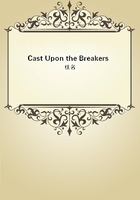THE CONSTITUTION OF THE STATE OF NEW YORK.
As New York is the most populous State of the Union, having the largest representation in Congress--on which account it has been called the Empire State--I propose to state, as shortly as may be, the nature of its separate constitution as a State. Of course it will be understood that the constitutions of the different States are by no means the same. They have been arranged according to the judgment of the different people concerned, and have been altered from time to time to suit such altered judgment. But as the States together form one nation, and on such matters as foreign affairs, war, customs, and post-office regulations, are bound together as much as are the English counties, it is, of course, necessary that the constitution of each should in most matters assimilate itself to those of the others. These constitutions are very much alike.
A Governor, with two houses of legislature, generally called the Senate and the House of Representatives, exists in each State. In the State of New York the Lower House is called the Assembly. In most States the Governor is elected annually; but in some States for two years, as in New York. In Pennsylvania he is elected for three years. The House of Representatives or the Assembly is, Ithink, always elected for one session only; but as in many of the States the legislature only sits once in two years, the election recurs of course at the same interval. The franchise in all the States is nearly universal, but in no State is it perfectly so.
The Governor, Lieutenant-Governor, and other officers are elected by vote of the people, as well as the members of the legislature.
Of course it will be understood that each State makes laws for itself--that they are in nowise dependent on the Congress assembled at Washington for their laws--unless for laws which refer to matters between the United States as a nation and other nations, or between one State and another. Each State declares with what punishment crimes shall be visited; what taxes shall be levied for the use of the State; what laws shall be passed as to education;what shall be the State judiciary. With reference to the judiciary, however, it must be understood that the United States as a nation have separate national law courts, before which come all cases litigated between State and State, and all cases which do not belong in every respect to any one individual State. In a subsequent chapter I will endeavor to explain this more fully. In endeavoring to understand the Constitution of the United States, it is essentially necessary that we should remember that we have always to deal with two different political arrangements--that which refers to the nation as a whole, and that which belongs to each State as a separate governing power in itself. What is law in one State is not law in another, nevertheless there is a very great likeness throughout these various constitutions, and any political student who shall have thoroughly mastered one, will not have much to learn in mastering the others.
This State, now called New York, was first settled by the Dutch in 1614, on Manhattan Island. They established a government in 1629, under the name of the New Netherlands. In 1664 Charles II. granted the province to his brother, James II., then Duke of York, and possession was taken of the country on his behalf by one Colonel Nichols. In 1673 it was recaptured by the Dutch, but they could not hold it, and the Duke of York again took possession by patent.
A legislative body was first assembled during the reign of Charles II., in 1683; from which it will be seen that parliamentary representation was introduced into the American colonies at a very early date. The Declaration of Independence was made by the revolted colonies in 1776, and in 1777 the first constitution was adopted by the State of New York. In 1822 this was changed for another; and the one of which I now purport to state some of the details was brought into action in 1847. In this constitution there is a provision that it shall be overhauled and remodeled, if needs be, once in twenty years. Article XIII. Sec. 2. "At the general election to be held in 1806, and in each twentieth year thereafter, the question, 'Shall there be a convention to revise the constitution and amend the same?' shall be decided by the electors qualified to vote for members of the legislature?" So that the New Yorkers, cannot be twitted with the presumption of finality in reference to their legislative arrangements.
The present constitution begins with declaring the inviolability of trial by jury, and of habeas corpus--"unless when, in cases of rebellion or invasion, the public safety may require its suspension." It does not say by whom it may be suspended, or who is to judge of the public safety, but, at any rate, it may be presumed that such suspension was supposed to come from the powers of the State which enacted the law. At the present moment, the habeas corpus is suspended in New York, and this suspension has proceeded not from the powers of the State, but from the Federal government, without the sanction even of the Federal Congress.
"Every citizen may freely speak, write, and publish his sentiments on all subjects, being responsible for the abuse of that right; and no law shall be passed to restrain or abridge the liberty of speech or of the press." Art. I. Sec. 8. But at the present moment liberty of speech and of the press is utterly abrogated in the State of New York, as it is in other States. I mention this not as a reproach against either the State or the Federal government, but to show how vain all laws are for the protection of such rights.
If they be not protected by the feelings of the people--if the people are at any time, or from any cause, willing to abandon such privileges, no written laws will preserve them.















